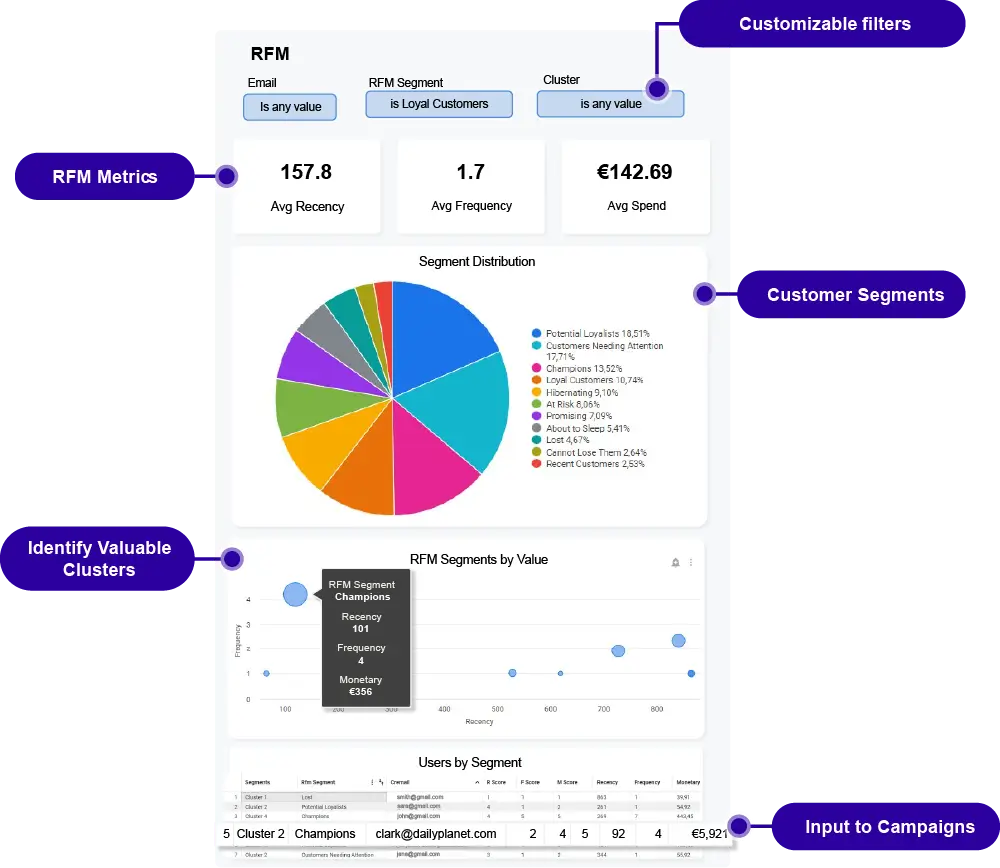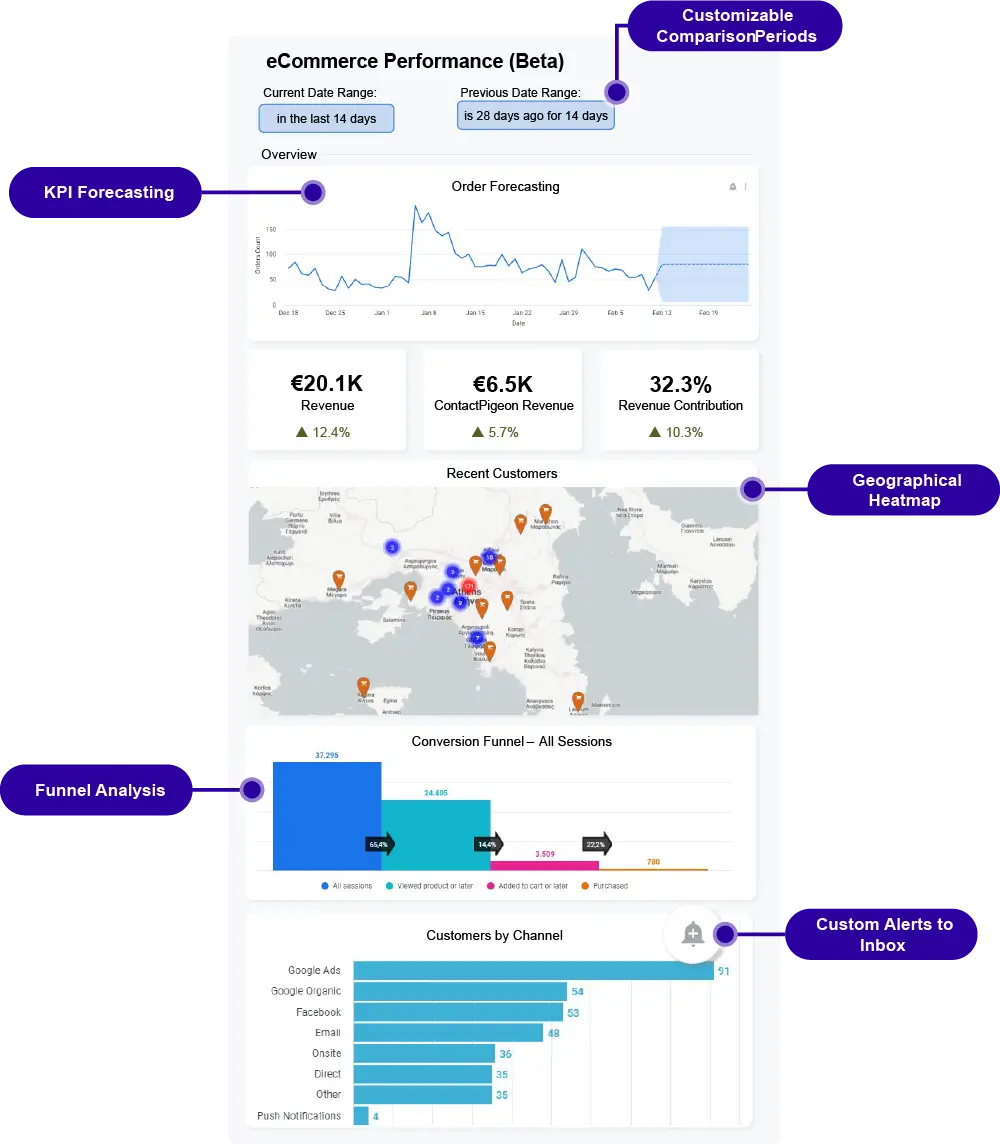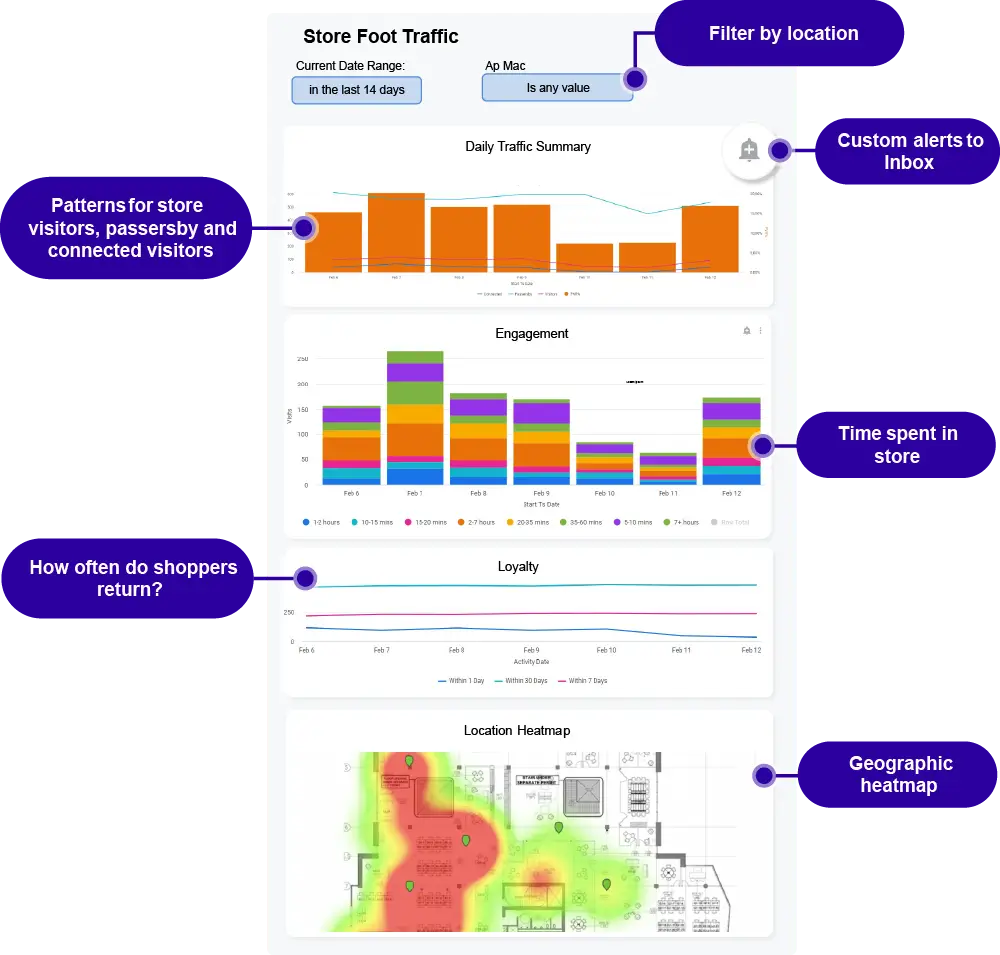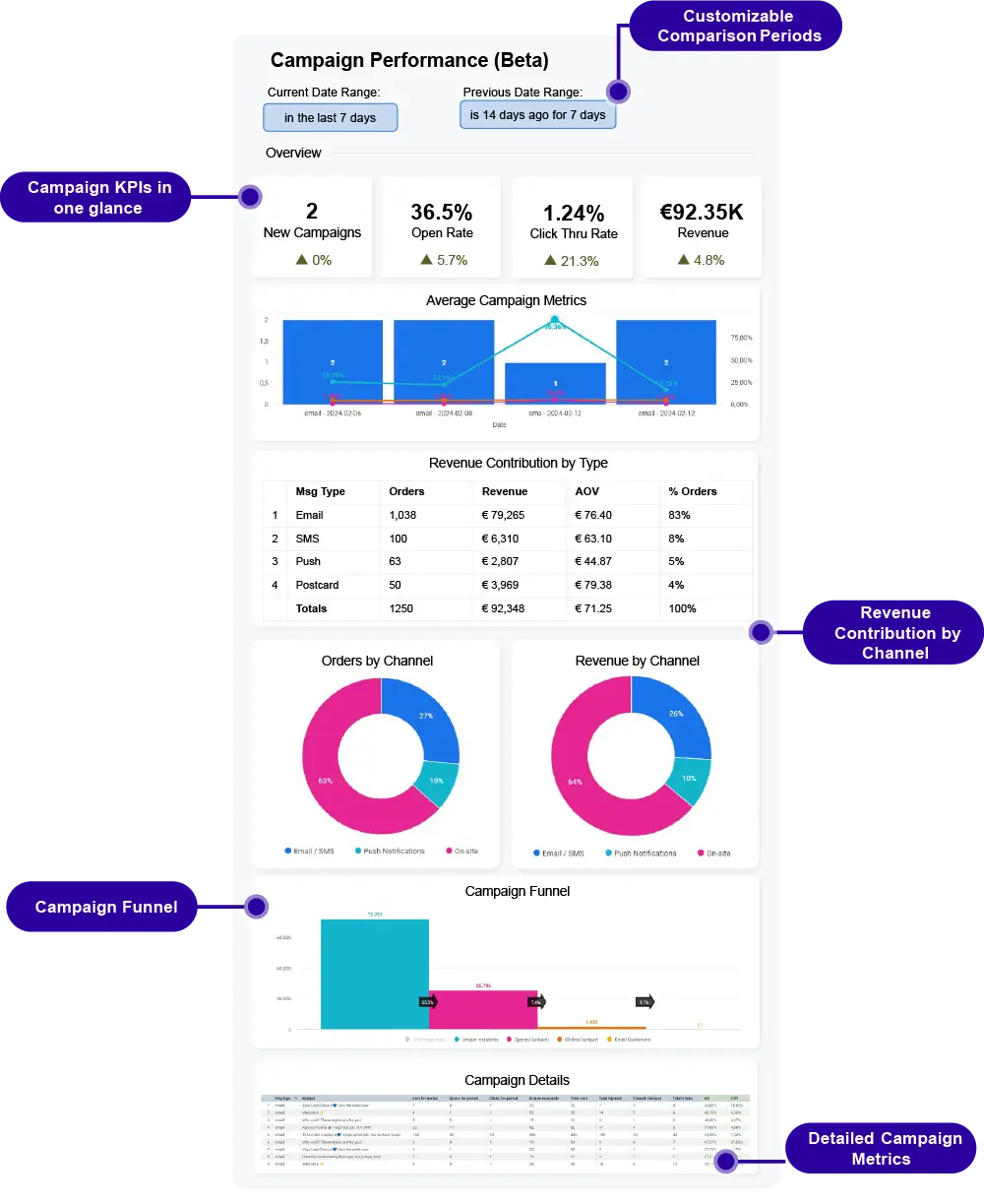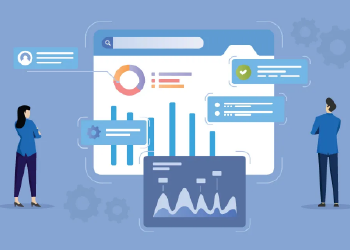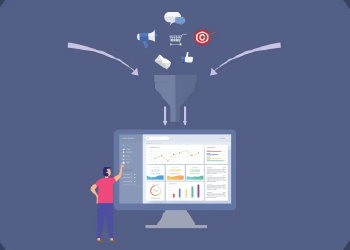
Democratize your data, leave the technical nitty-gritty
Harness your first-party data
Gain access to the trove of big data on your customers' web behaviors, campaign engagements, and ecommerce histories directly through the platform.
Seamless data integration
We are integrated with many of the largest CMS and data warehouses so you can gain consolidated customer data with minimal friction.
Built-in data warehouse
Connect siloed data into a centralized cloud data warehouse running on BigQuery, and benefit from the BI, machine learning, and AI built-within its native offering.

Relish the power of a single customer view
Bring order to the data chaos and organize your customer insights among disparate touchpoints.
Unified customer profiles across scattered sources
Generate a 360-degree view of your customers with unified web behaviors, campaign interactions, and eCommerce activities in real-time.
Deliver a consistent omnichannel experience
Coordinate a holistic, omnichannel experinece online and offline with marketing insights and actionable triggers along every step of the shopping journey.
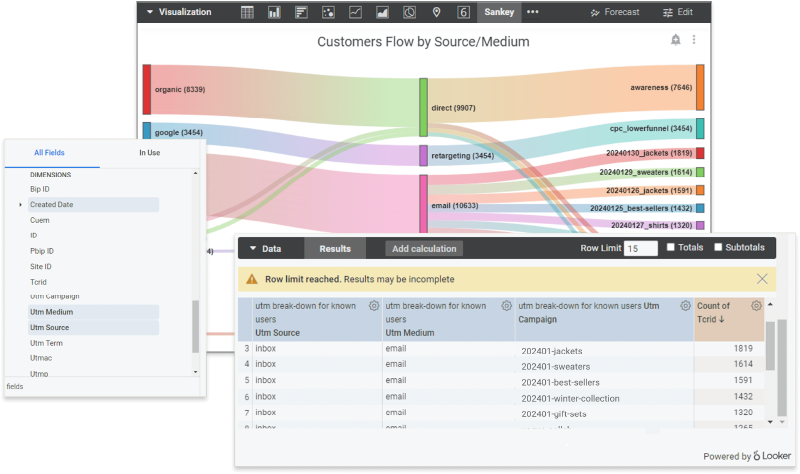
Get actionable customer insights with data exploration
Built-in BI analytics
Access our data exploration tool powered by Looker to navigate, pivot, and tell compelling visual stories on your data.
Pre-defined dashboards for all teams
Enjoy faster time to value out-of-box dashboards and KPIs for all team roles. Gain actionable insights into customer segments, channel performance, retail trends, and in-store activities with easy-to-follow data visualization.
Customizable data models with minimal tech skills
Dive into Powerful BI models and custom visualizations for deep analytics and insights with LookML (SQL-based modeling language).
Empower your next step with deep insight
Spot key trends in conversions, customer retention, and engagements from your web traffic.
Understand channel sources which drive valuable traffic with higher conversion and repeat rates.
Pinpoint where users are dropping off and identify opportunity for optimizin conversion paths to minimize friction within every stage of the funnel.
Know which channels and campaigns bring in the traffic and sales results with cross channel attributions.
Easily compare campaign performance across channel, products, and customer segments with drill down ability for greater details.
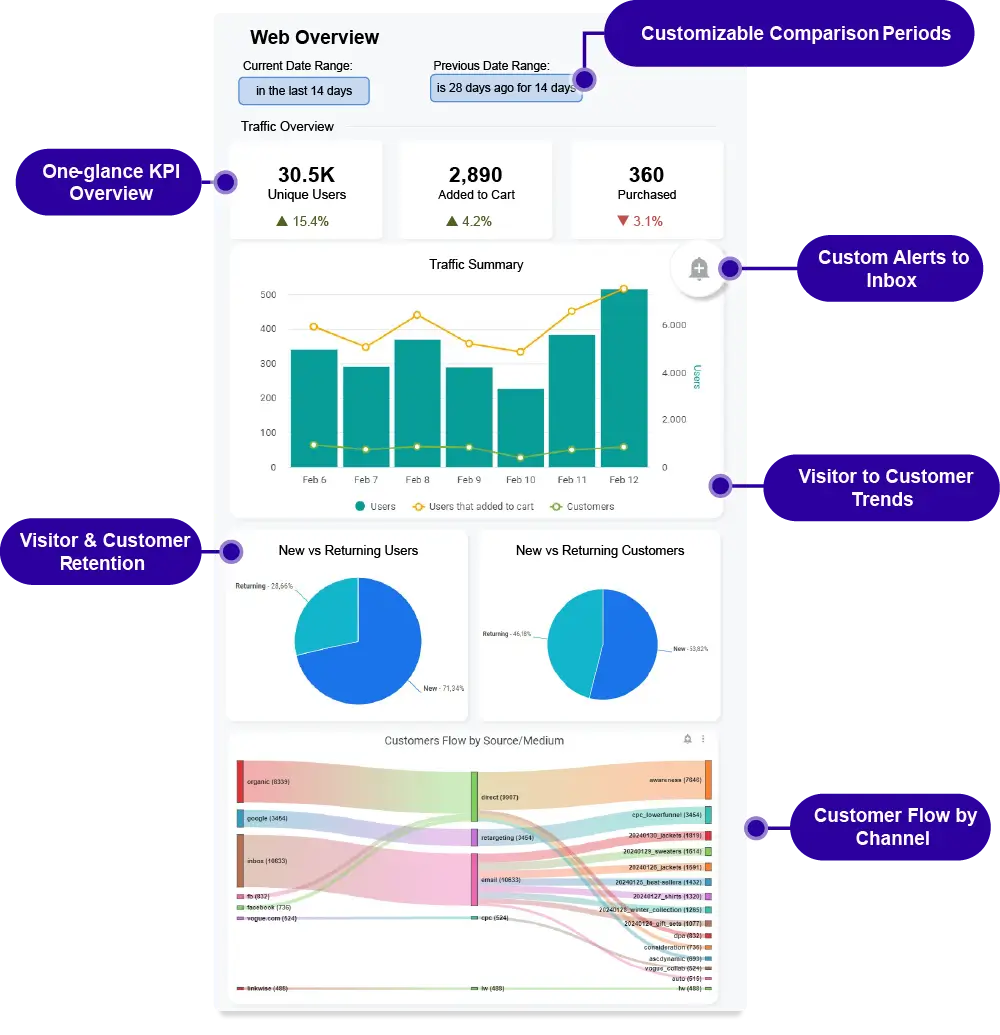


Our goal is to find innovative ways of using data to make informed, verified decisions. ContactPigeon is an important partner in helping us achieve our objectives.

Tap into the power of intelligent marketing with AI

Drive faster outcomes with personalized recommendations
Boost campaign outcomes with personalized content and product recommendations across your email, SMS, on-site pop-ups, push notifications, and chat messages.
Individual optimized delivery time
Your campaign delivery is personalized to each recicpient in the list, optimized to the time every individual is most likely to open and engage.
Predict your audience's next moves
Foresee future behavior and reduce the likelihood of customer churn with dynamic product suggestions for cross or upselling based on customer interests.
AI-assisted content generation
Boost marketing productivity with ContactPigeon's AI content assistant. Get content ideas and content variations at the click of a button.
One CDP. Built for all teams
Foster efficiency with informed, data-driven decision-making across various organizational functions.
Marketing
Benefit from deeper insights into segmented personas, optimized campaign strategies, and more precise customer targeting across all marketing channels. Improve overall marketing performance and get better returns on marketing spend.
Retail & eCommerce
Leverage CDP to gain comprehensive insights into commerce patterns, understand customer behaviors across channels, and identify prevalent product preferences. Enable informed decision-making in product management and sales strategies.
CRM & Analytics
Delve into centralized customer data, advanced modeling, and analytic tools, with the flexibility to customize reporting and dashboards. Enhance the ability to derive meaningful insights from the data.
Executives
Get high-level perspectives on future trends supported by predictions to facilitate improved strategic decision-making. Empower timely responses with real-time alerts on critical business Key Performance Indicators (KPIs), such as sudden surges in order volume.
All features you need to stay top of customers' mind.
Unified customer profiles
Dynamic segmentation
Campaign Management
Pre-designed templates
Omnichannel orchestration
Built-in GDPR compliance
BI analytics
Multi-users login
Multi-channel attribution
Personalization & recommendation
Marketing intelligence & AI
Live account management & support






